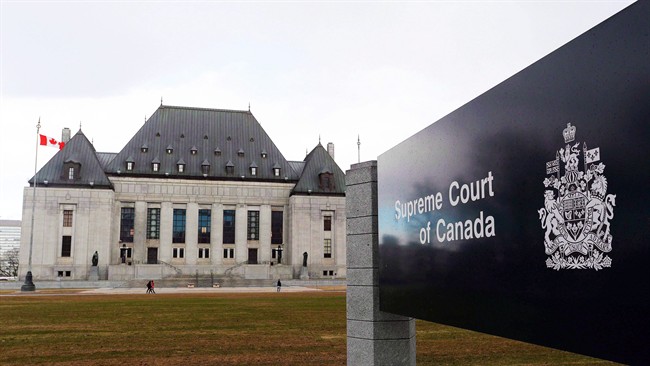Prime Minister Justin Trudeau has announced the nomination of a judge from Newfoundland and Labrador to become Canada’s newest Supreme Court justice.

Malcolm Rowe has been a trial judge since 1999, according to a biography accompanying Monday’s announcement, and has sat on the Court of Appeal of Newfoundland and Labrador since 2001.
“Justice Rowe’s deep knowledge of criminal, constitutional, and public law has made him an ideal candidate to sit on Canada’s highest court,” the announcement read.
READ MORE: Trudeau announces changes to process of selecting SCOC judges
According to questionnaire documents filled out by Rowe and made public on Monday, the judge speaks both French and English. He can understand oral submissions, converse with counsel, read and understand court materials and converse with colleagues in both official languages, the documents state.
That was a key priority for the government in selecting the nominee.
Trudeau had said regional representation was also important in selecting the newest Supreme Court justice, but he did not commit to ensuring the country’s top court had a judge from Atlantic Canada.
That prompted backlash from the Opposition benches, as well as from the Atlantic Provinces Trial Lawyers Association. The association sought an order from Nova Scotia’s Supreme Court that would require Ottawa to amend the Constitution if it wants to drop regional representation as constitutional convention.
Rowe will now have to prepare for a special meeting of the members of the House of Commons’ Committee on Justice and Human Rights. During that meeting, Justice Minister Jody Wilson Raybould and the chair of the government’s newly created independent advisory board on Supreme Court appointments will explain why Rowe has been chosen.
The nomination comes less than three months after Ottawa announced a new selection process for Supreme Court of Canada justices. The chair of the new advisory board is former Canadian prime minister Kim Campbell, and she tweeted her congratulations on Monday afternoon.
“To further meet our commitment to openness and transparency, members of the House’s Justice and Human Rights Committee and Senate’s Legal and Constitutional Affairs Committee – as well as representatives of the Bloc Québécois and Green Party – will be invited to take part in a Q&A session with the nominee, moderated by a law professor, on October 25,” the prime minister’s office has announced.
READ MORE: Canada’s justice minister pledges to appoint more judges in ‘near future’
Rowe is expected to fill the vacancy left by Justice Thomas Cromwell, who retired from the Supreme Court of Canada on Sept. 1. His appointment will mark the first time Newfoundland and Labrador has been represented on the Supreme Court since the province joined Confederation in 1949.
Fast facts about Malcolm Rowe
- Rowe was born in 1953 in St. John’s, Newfoundland and Labrador. Both his parents were from small fishing communities, with his father raised on Fogo Island and his mother in the community of Lamaline. Rowe wrote in his questionnaire answers that as a child, “I saw hard manual labour, financial uncertainty and sometimes want, as well as a deep sense of community” in both villages.
- From 2002 to 2016, Rowe was involved with Action Canada, a youth leadership development program, as an advisor, mentor and member of the national selection committee.
- Rowe believes the Supreme Court of Canada’s main function is to make law. He wrote that “through the leave to appeal process, the Court chooses areas of the law in which it wishes to make a definitive statement. Thus, the Supreme Court judges ordinarily make law, rather than simply applying it.”
- Rowe was a lecturer in public and constitutional law at the University of Ottawa, Faculty of Law, for two years in the early 1990s.




Comments